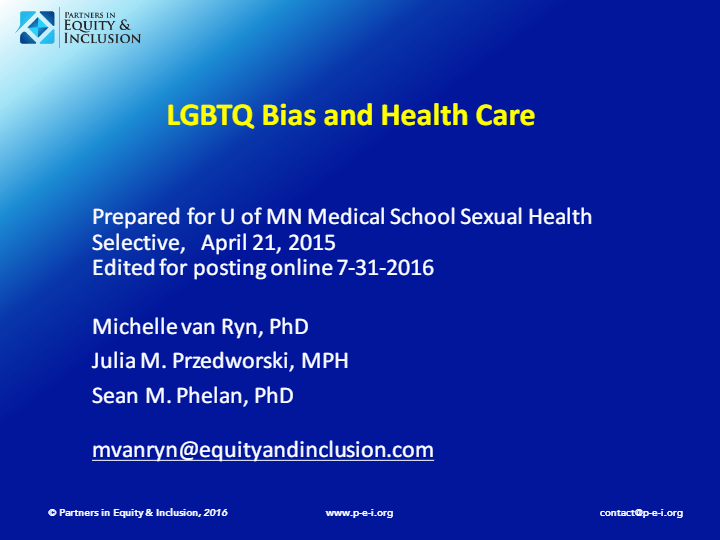Unintended Bias in Health Care Strategies for Providing More Equitable Care
Research shows that unintentional bias on the part of physicians can influence the way they treat patients from
certain racial and ethnic groups. Most physicians are unaware that they hold such biases, which can unknowingly
contribute to inequalities in health care delivery. This article explains why a person’s thoughts and behaviors may
not align, and provides strategies for preventing implicit biases from interfering with patient care.









